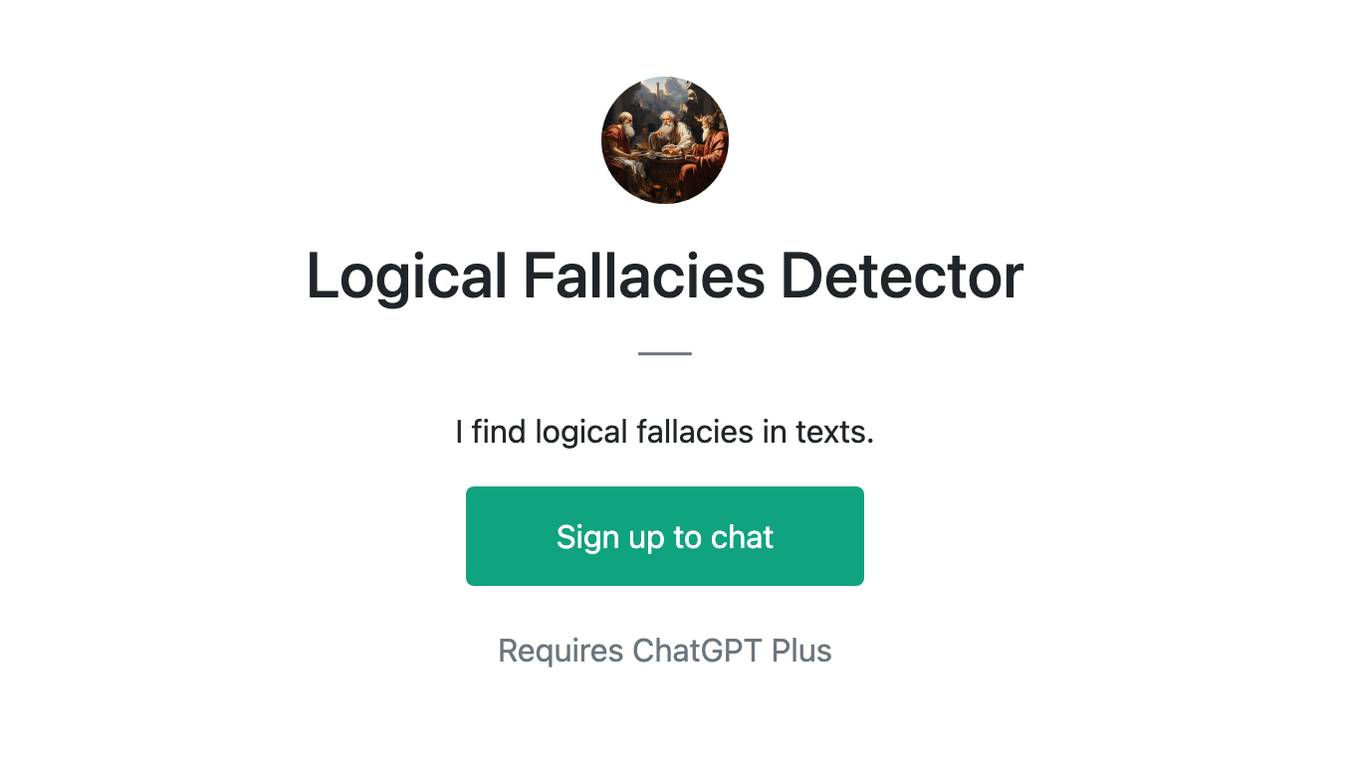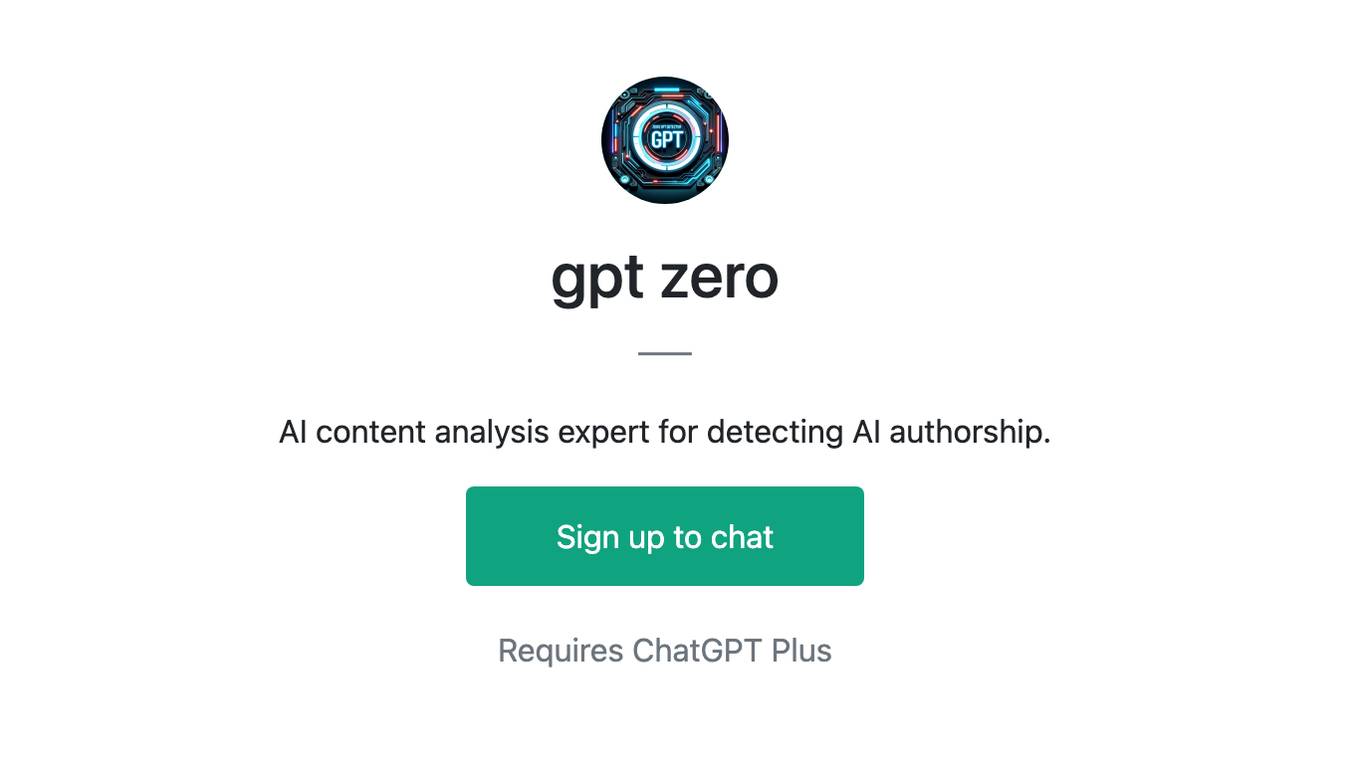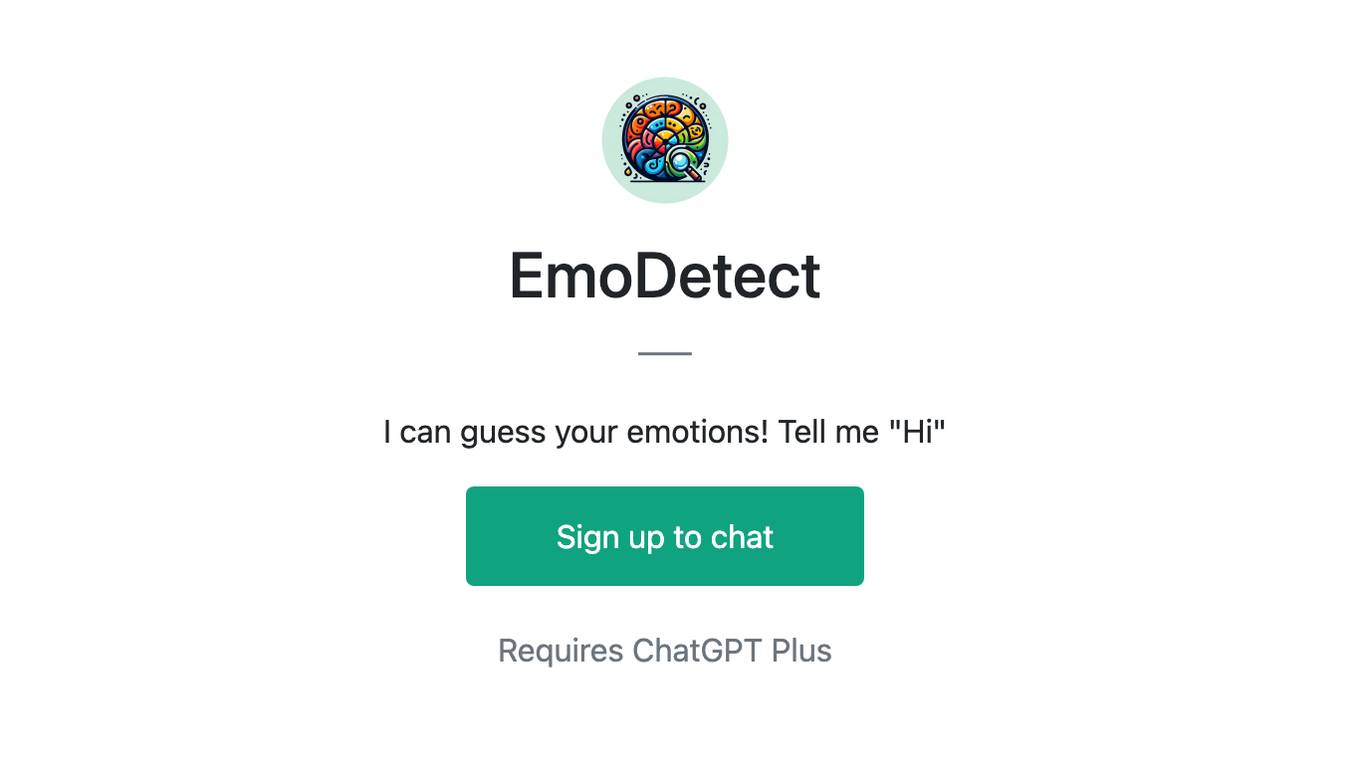Best AI tools for< Detect Start Node >
20 - AI tool Sites
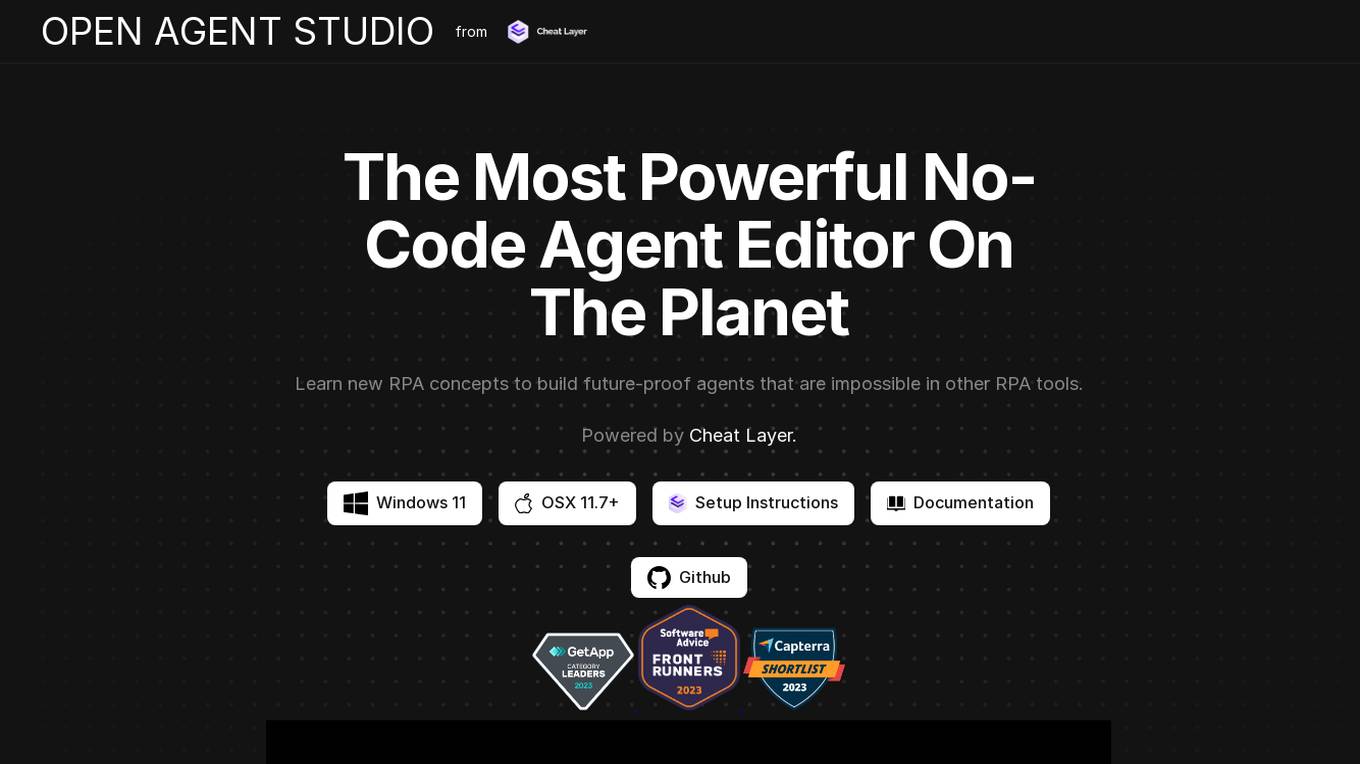
Open Agent Studio
Open Agent Studio is a powerful no-code agent editor that introduces new automation concepts like Semantic Targets and Semantic Triggers in simple language, enabling the creation of future-proof agents that are robust to design changes. It is designed to target markets untouched by AI, offering subscribers a free 4-week course to launch custom agents with enterprise-grade white label. The tool includes an Agent Recorder for easy building of agents by recording keyboard and mouse actions, scraping data, and detecting the start node. Open Agent Studio is powered by Cheat Layer, a platform that leverages GPT-3 for automation and aims to democratize access to AI for rebuilding businesses online.

Start Left® Security
Start Left® Security is an AI-driven application security posture management platform that empowers product teams to automate secure-by-design software from people to cloud. The platform integrates security into every facet of the organization, offering a unified solution that aligns with business goals, fosters continuous improvement, and drives innovation. Start Left® Security provides a gamified DevSecOps experience with comprehensive security capabilities like SCA, SBOM, SAST, DAST, Container Security, IaC security, ASPM, and more.
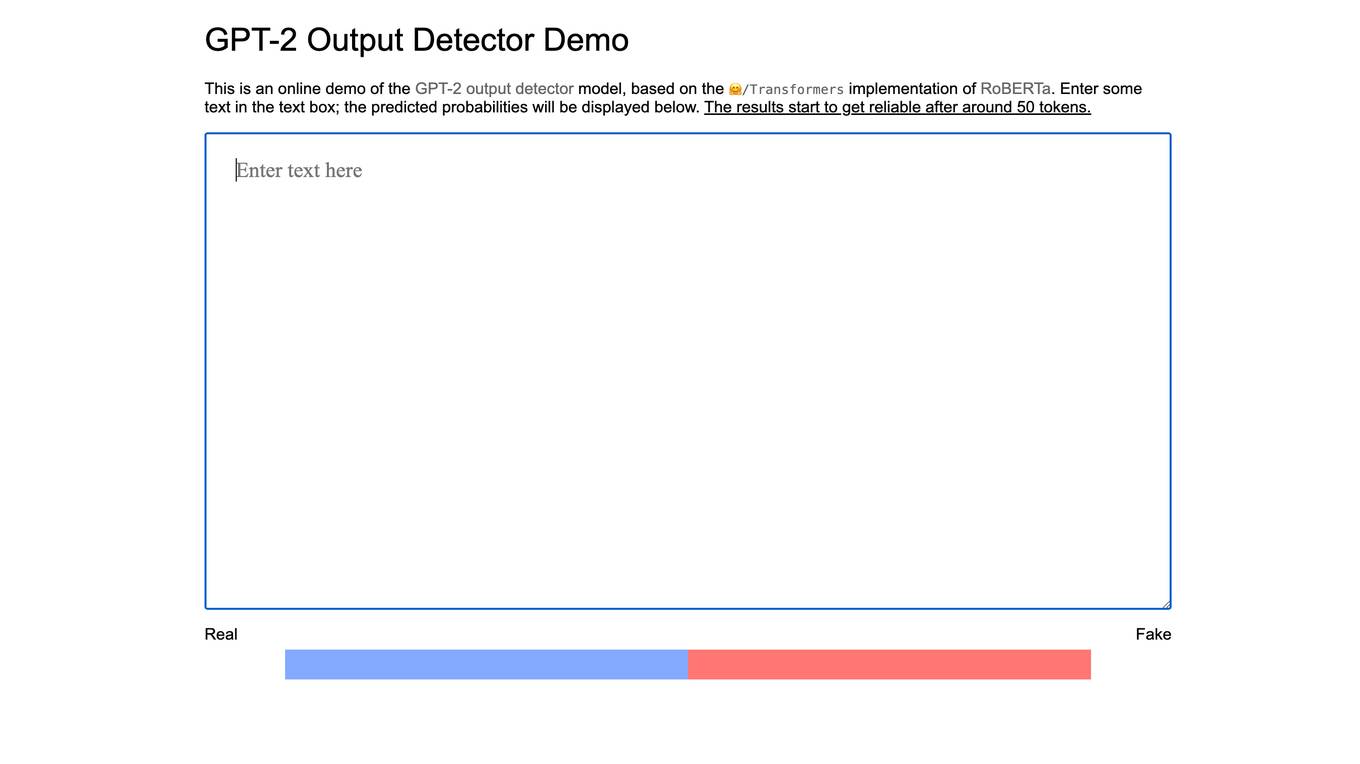
GPT-2 Output Detector
The GPT-2 Output Detector is an online tool that helps users identify whether a given text was generated by the GPT-2 language model. The tool is based on the RoBERTa implementation of Transformers, a popular natural language processing library. Users can enter text into the text box, and the tool will predict the probability that the text was generated by GPT-2. The results start to get reliable after around 50 tokens.
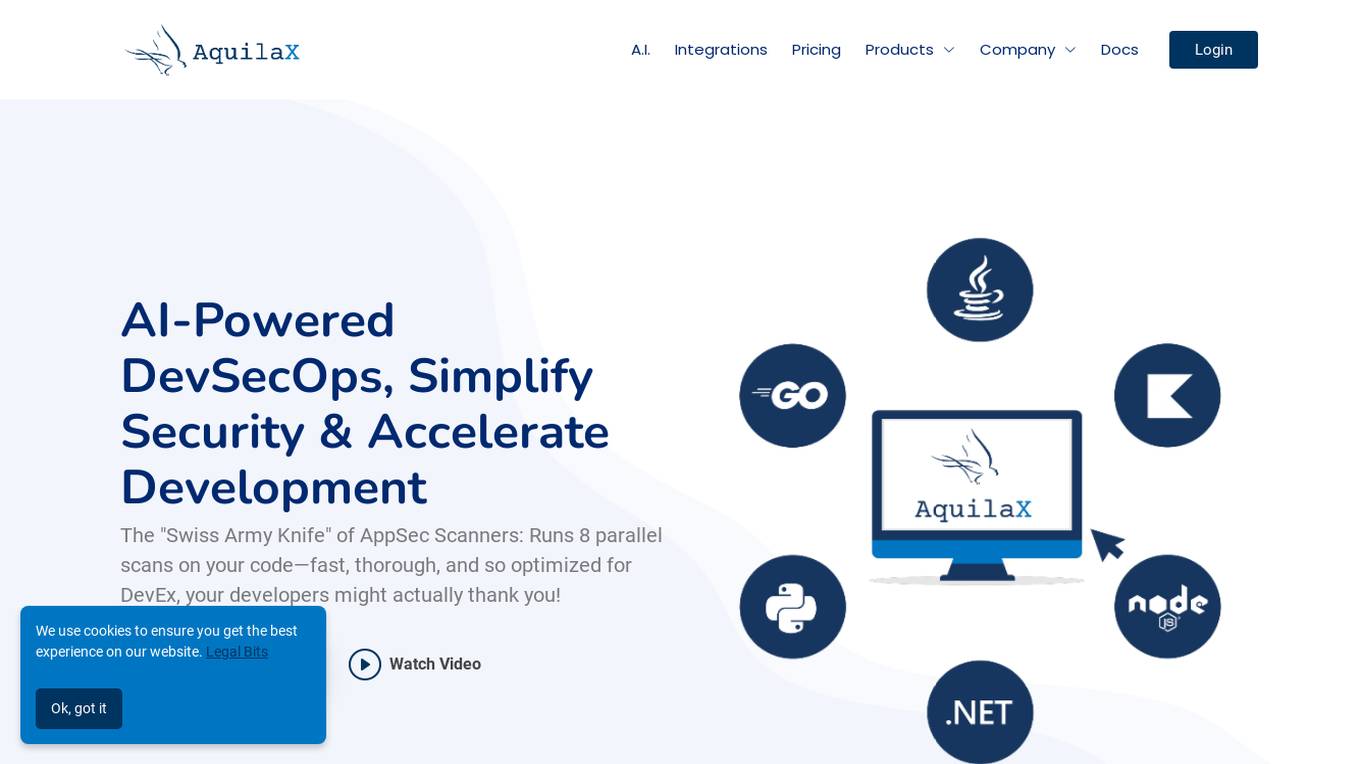
AquilaX
AquilaX is an AI-powered DevSecOps platform that simplifies security and accelerates development processes. It offers a comprehensive suite of security scanning tools, including secret identification, PII scanning, SAST, container scanning, and more. AquilaX is designed to integrate seamlessly into the development workflow, providing fast and accurate results by leveraging AI models trained on extensive datasets. The platform prioritizes developer experience by eliminating noise and false positives, making it a go-to choice for modern Secure-SDLC teams worldwide.

Senior AI
Senior AI is a platform that leverages Artificial Intelligence to help individuals and companies develop and manage software products more efficiently and securely. It offers codebase awareness, bug analysis, security optimization, and productivity enhancements, making software development faster and more reliable. The platform provides different pricing tiers suitable for individuals, power users, small teams, growing teams, and large teams, with the option for enterprise solutions. Senior AI aims to supercharge software development with an AI-first approach, guiding users through the development process and providing tailored code suggestions and security insights.

Blumo
Blumo is an AI-powered platform for home cannabis cultivation, offering grow kits and a mobile app that provide personalized daily tasks and guidance for plant care. The platform includes features such as automatic issue detection, high-performance equipment, community support, and minimal daily involvement. Blumo aims to empower individuals to grow high-quality cannabis effortlessly at home with cutting-edge AI technology and comprehensive grow kits.
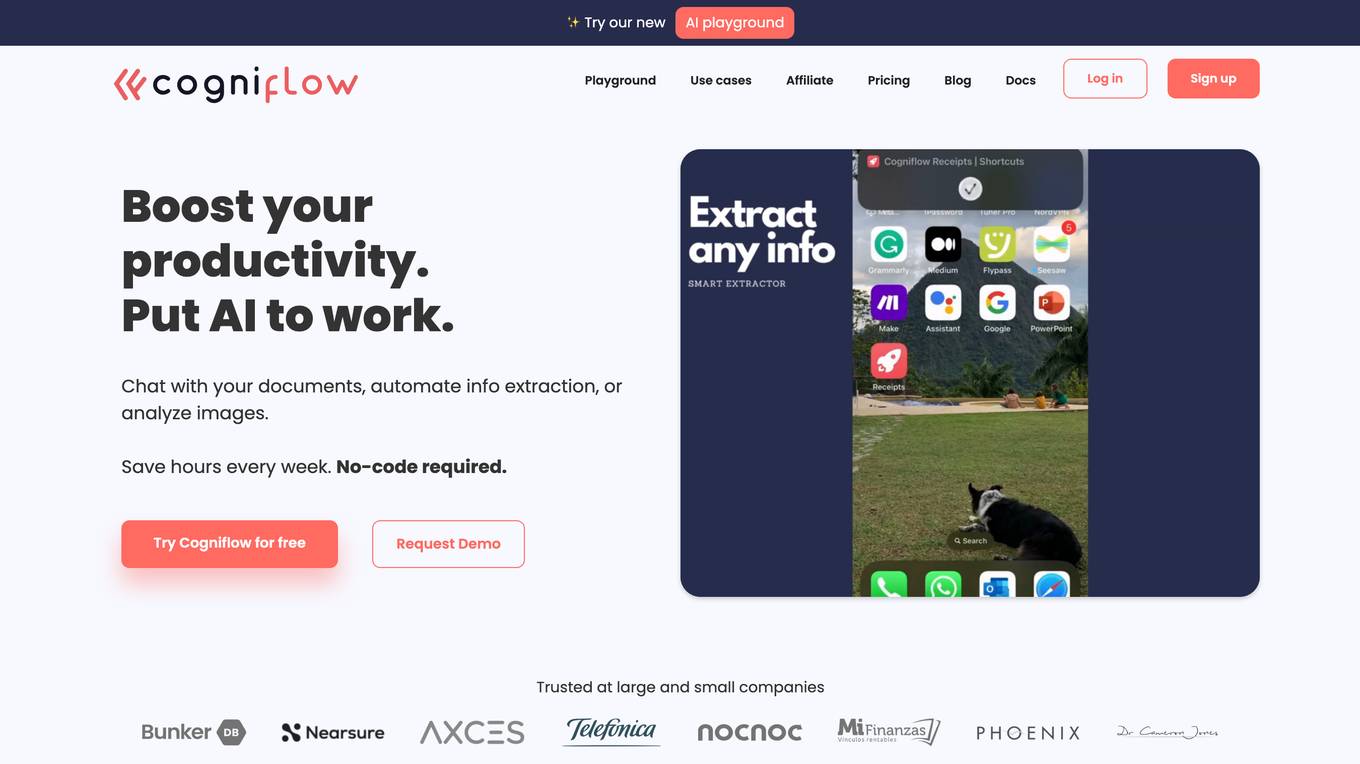
Cogniflow
Cogniflow is a no-code AI platform that allows users to build and deploy custom AI models without any coding experience. The platform provides a variety of pre-built AI models that can be used for a variety of tasks, including customer service, HR, operations, and more. Cogniflow also offers a variety of integrations with other applications, making it easy to connect your AI models to your existing workflow.

MindCommerce
MindCommerce is a leading provider of AI-powered solutions for the retail industry. Our mission is to help retailers unlock the power of AI to improve their customer experience, increase sales, and reduce costs. We offer a range of AI-powered solutions, including personalized recommendations, automated customer service, and fraud detection.
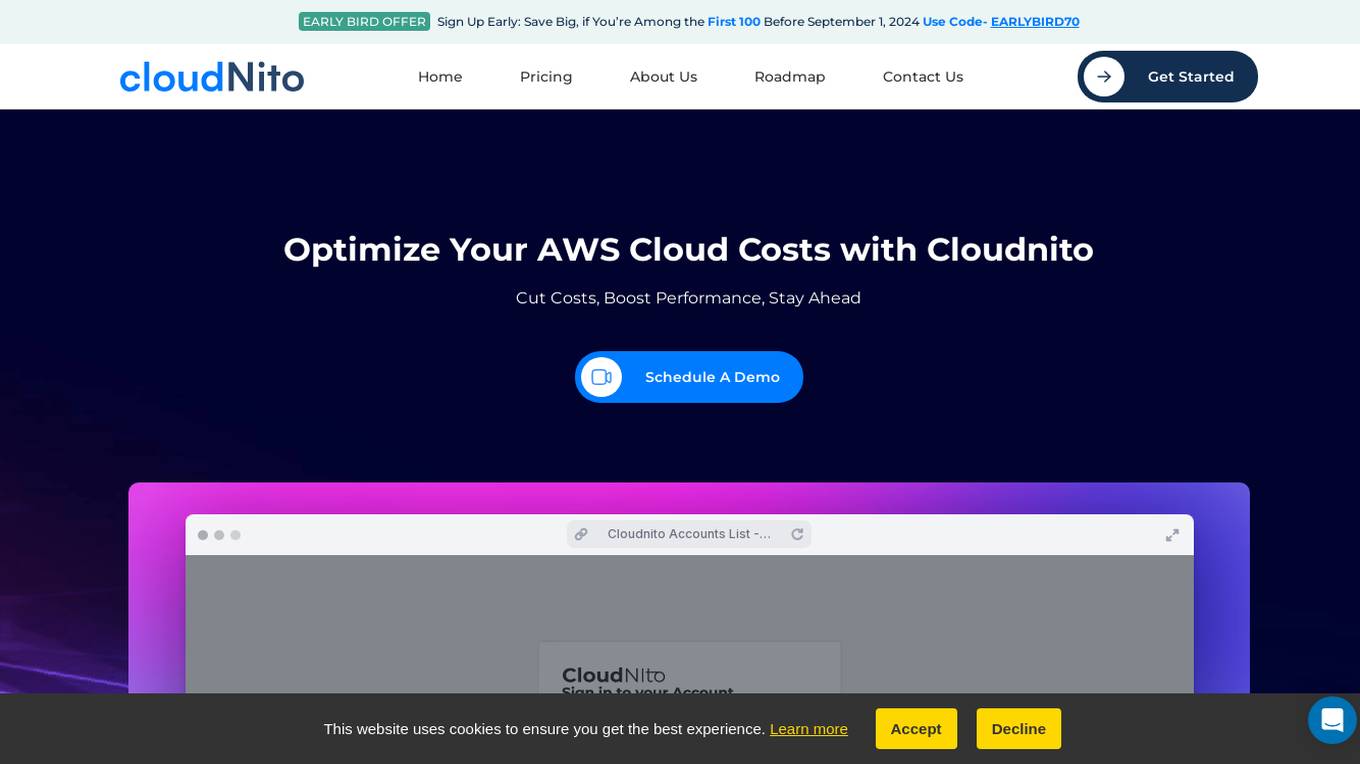
cloudNito
cloudNito is an AI-driven platform that specializes in cloud cost optimization and management for businesses using AWS services. The platform offers automated cost optimization, comprehensive insights and analytics, unified cloud management, anomaly detection, cost and usage explorer, recommendations for waste reduction, and resource optimization. By leveraging advanced AI solutions, cloudNito aims to help businesses efficiently manage their AWS cloud resources, reduce costs, and enhance performance.
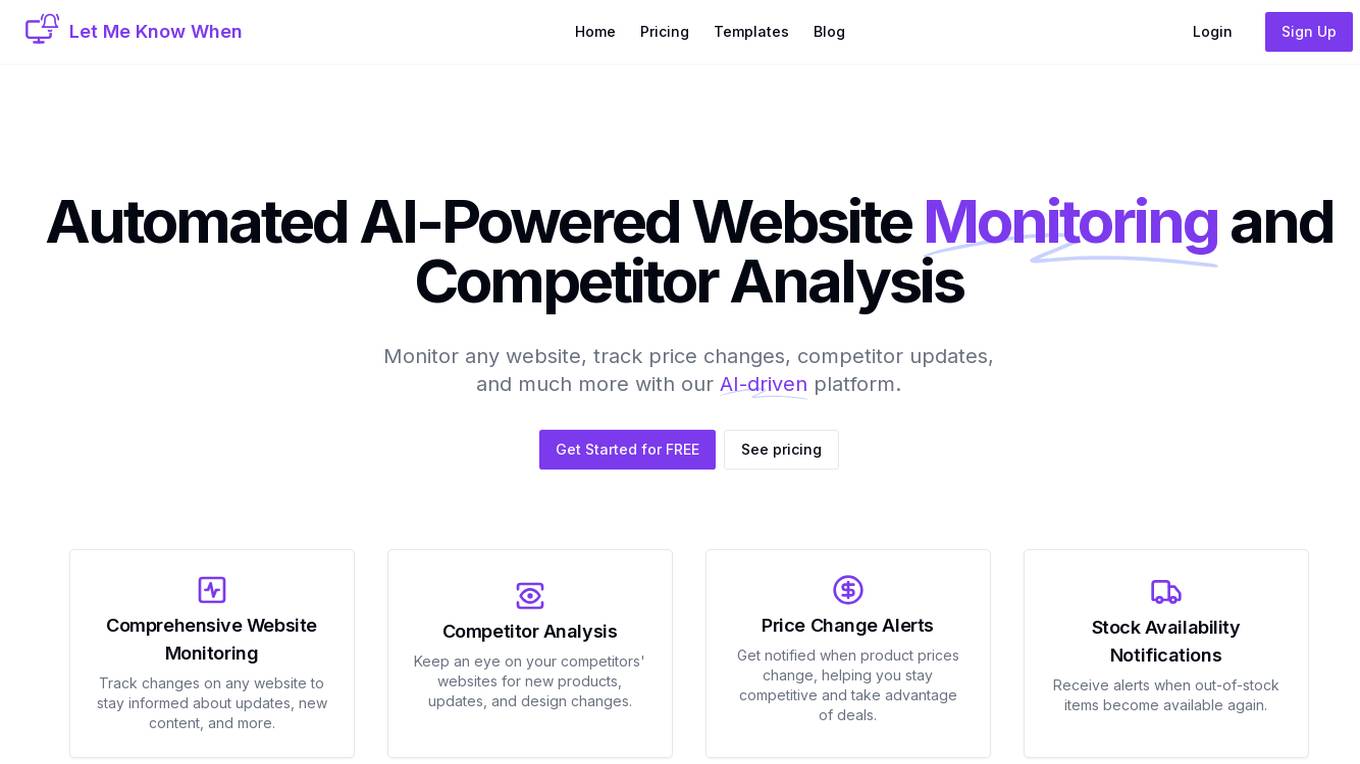
Let Me Know When
Let Me Know When is an AI-powered website monitoring tool that offers automated monitoring and competitor analysis. It allows users to track changes on any website, receive price change alerts, monitor competitor websites, detect design changes, and stay updated with content changes. The platform provides insights on SEO performance, product launches, job postings, event tickets, cryptocurrency and stock prices, Google search trends, news updates, customer reviews, and software version tracking. Let Me Know When offers flexible pricing plans and an AI assistant for intelligent insights.
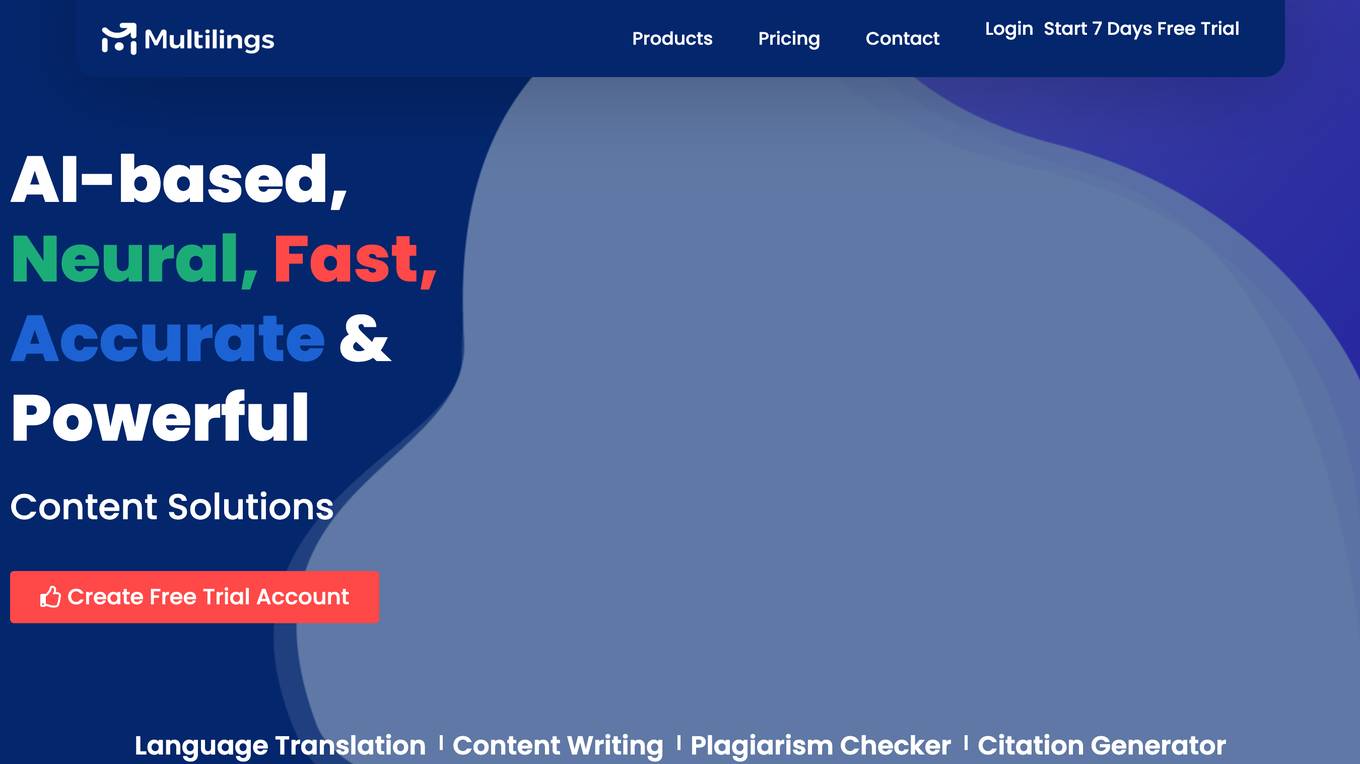
Multilings
Multilings is a neural AI-based machine learning service that provides human-like output for text translation, content writing, plagiarism detection, and voice translation. It is designed for marketers, content writers, researchers, students, and anyone who needs to create high-quality content quickly and efficiently. Multilings offers a range of tools, including a writing assistant, language translator, plagiarism checker, citation generator, and AI chatbot. These tools are powered by advanced machine learning and artificial intelligence algorithms that can generate natural-sounding text, translate languages accurately, detect plagiarism effectively, and provide helpful writing suggestions.
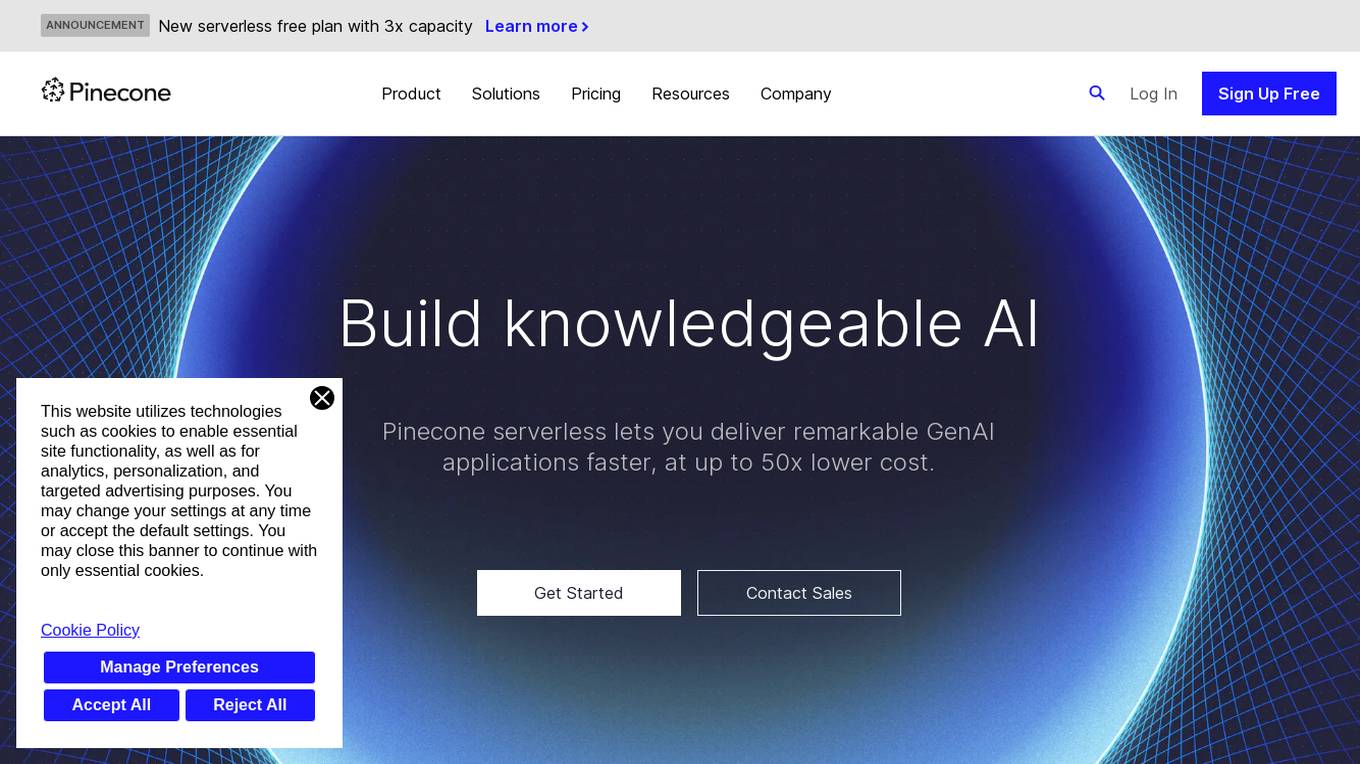
Pinecone
Pinecone is a vector database designed to build knowledgeable AI applications. It offers a serverless platform with high capacity and low cost, enabling users to perform low-latency vector search for various AI tasks. Pinecone is easy to start and scale, allowing users to create an account, upload vector embeddings, and retrieve relevant data quickly. The platform combines vector search with metadata filters and keyword boosting for better application performance. Pinecone is secure, reliable, and cloud-native, making it suitable for powering mission-critical AI applications.

Freenome
Freenome is a healthcare company that uses artificial intelligence and multiomics technology to detect cancer in its earliest stages through a simple blood draw. The company's mission is to make early cancer detection more accessible and affordable, and to improve the chances of successful treatment.

Freenome
Freenome is a healthcare company that uses artificial intelligence and multiomics technology to detect cancer in its earliest stages through a simple blood draw. The company's mission is to make early cancer detection more accessible and affordable, and to improve the chances of successful treatment.

Neuraspace
Neuraspace is an AI/ML solution that offers smart autonomy for space traffic management, leading the way for Space Domain Awareness and safety. It streamlines operations by automating risk assessment and providing maneuver suggestions up to 5 days before a conjunction. Neuraspace helps satellite operators, launch service providers, defense and governmental organizations, insurance carriers, and regulators manage space traffic efficiently and cost-effectively. The platform detects threats early, provides intelligence, integrates space domain awareness, and uses a global network of sensors for 24/7 real-time protection.
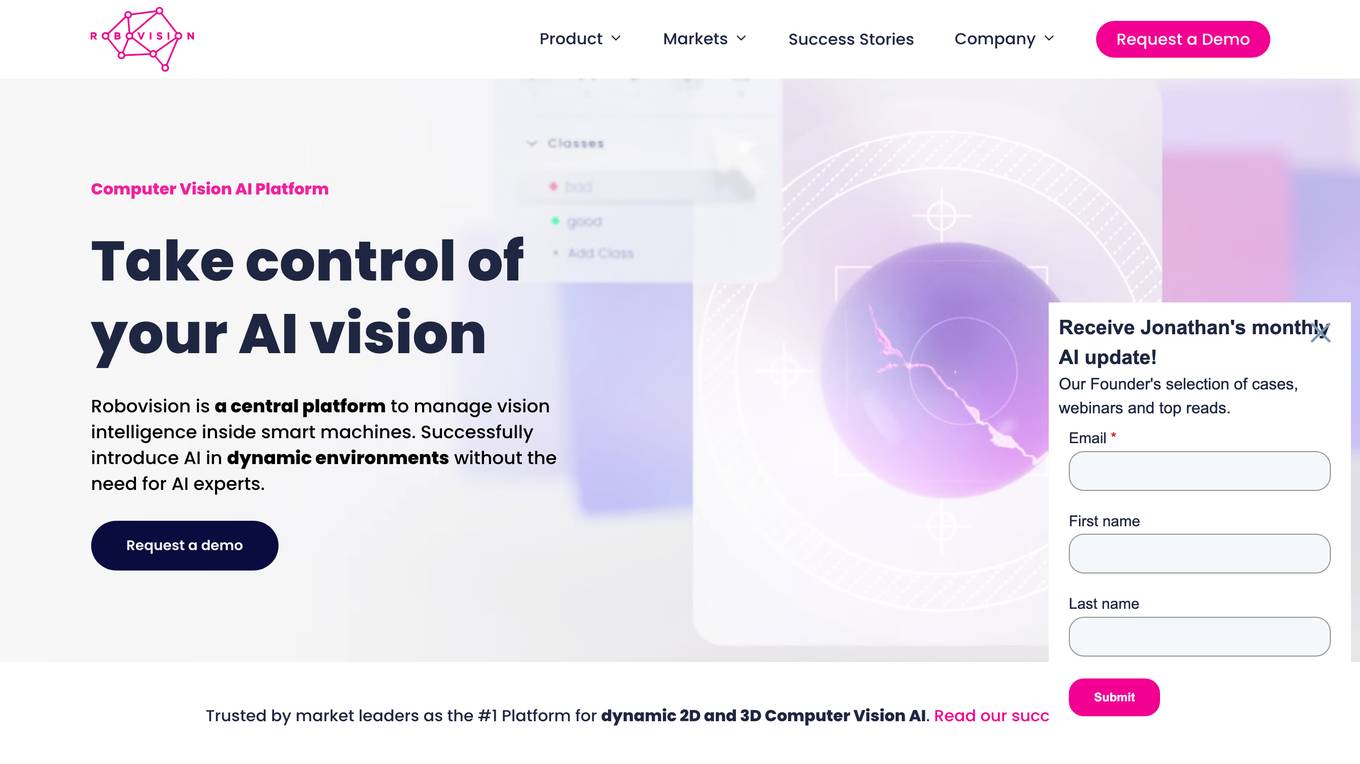
Robovision
Robovision is a central platform to manage vision intelligence inside smart machines. Successfully introduce AI in dynamic environments without the need for AI experts.
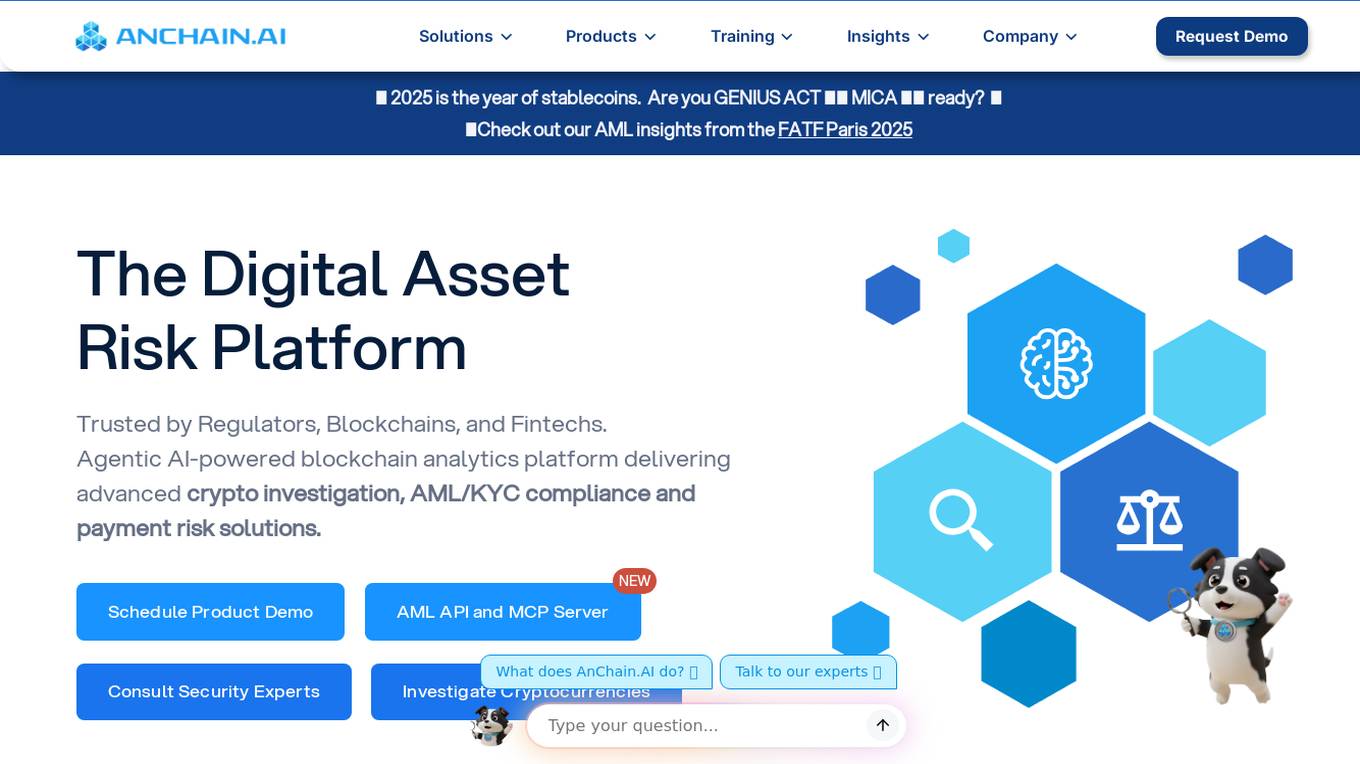
AnChainAI
AnChainAI is an AI-powered platform offering solutions for crypto investigations, AML compliance, fintech stablecoin payment screening, and Web3 smart contract security. It provides advanced AI technology to streamline financial crime investigations, compliance, and risk management for enterprises, regulators, and financial institutions. The platform leverages machine learning models, blockchain analytics, and smart contract intelligence to detect fraud, money laundering, and other illicit activities in the cryptocurrency space. AnChainAI also offers training programs through AnChain.AI University to educate users on blockchain technology, smart contracts, and cybersecurity.

Watergate
Watergate is a smart water leak detection application that helps users monitor and manage their water usage efficiently. It offers advanced features powered by AI technology to provide deep insights, proactive leak monitoring, and autopilot functionality. The application aims to optimize water use, maximize savings, and ensure water system safety. Watergate is designed to safeguard properties and conserve water resources by offering intelligent alerts and communication capabilities.
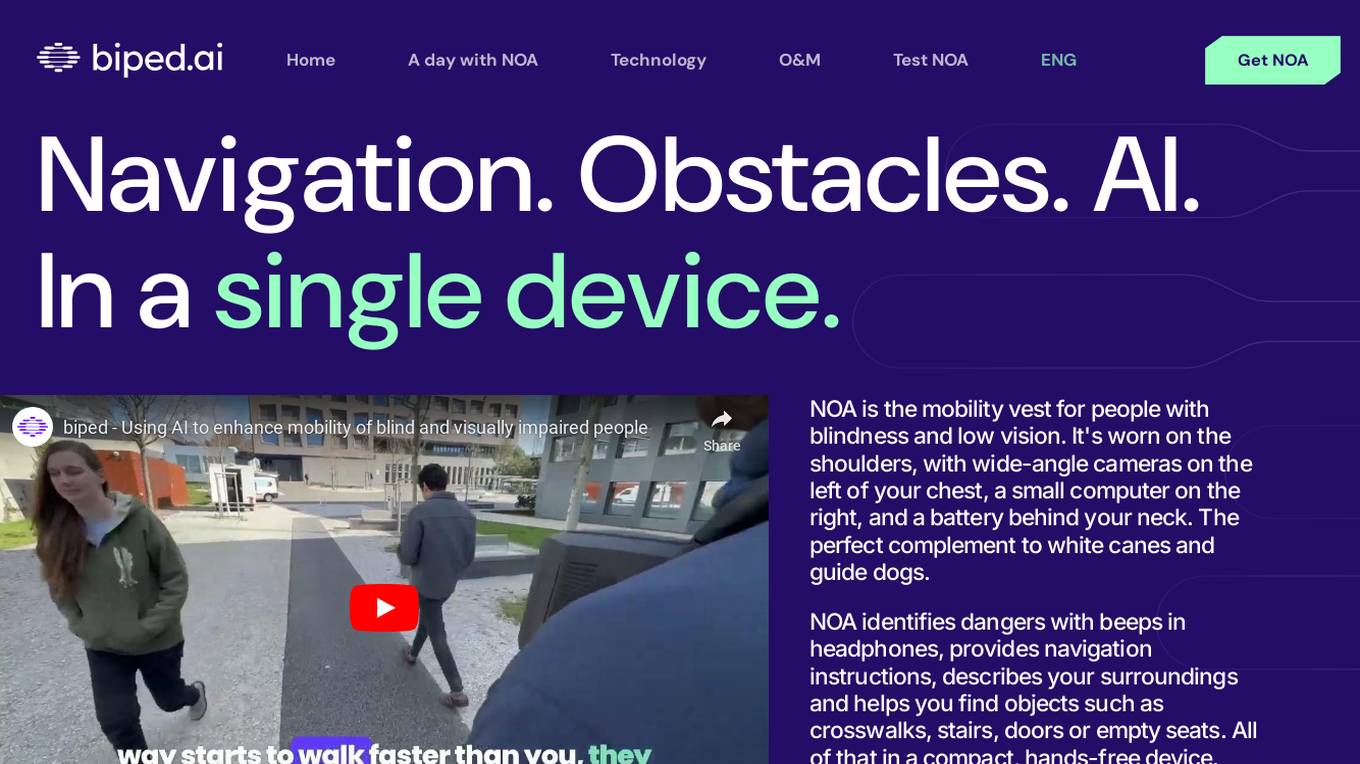
NOA
NOA by biped.ai is a revolutionary mobility vest designed to enhance the independence and safety of individuals with blindness and low vision. It combines cutting-edge AI technology with wearable devices to provide real-time navigation instructions, obstacle detection, and object finding capabilities. NOA is a hands-free solution that complements traditional mobility aids like white canes and guide dogs, offering a compact and lightweight design for seamless integration into daily life. Developed through extensive research and collaboration with experts in the field, NOA aims to empower users to navigate their surroundings with confidence and ease.

Tookitaki
Tookitaki is an AI-powered AML & Financial Crime Compliance Platform that offers end-to-end solutions for AML and fraud prevention. It provides AI-driven risk detection, real-time fraud prevention, prospect screening, risk scoring, alert prioritization, and case management. The platform is designed to help financial institutions enhance their AML risk management, reduce false positives, and meet regulatory requirements effectively.
0 - Open Source AI Tools
20 - OpenAI Gpts
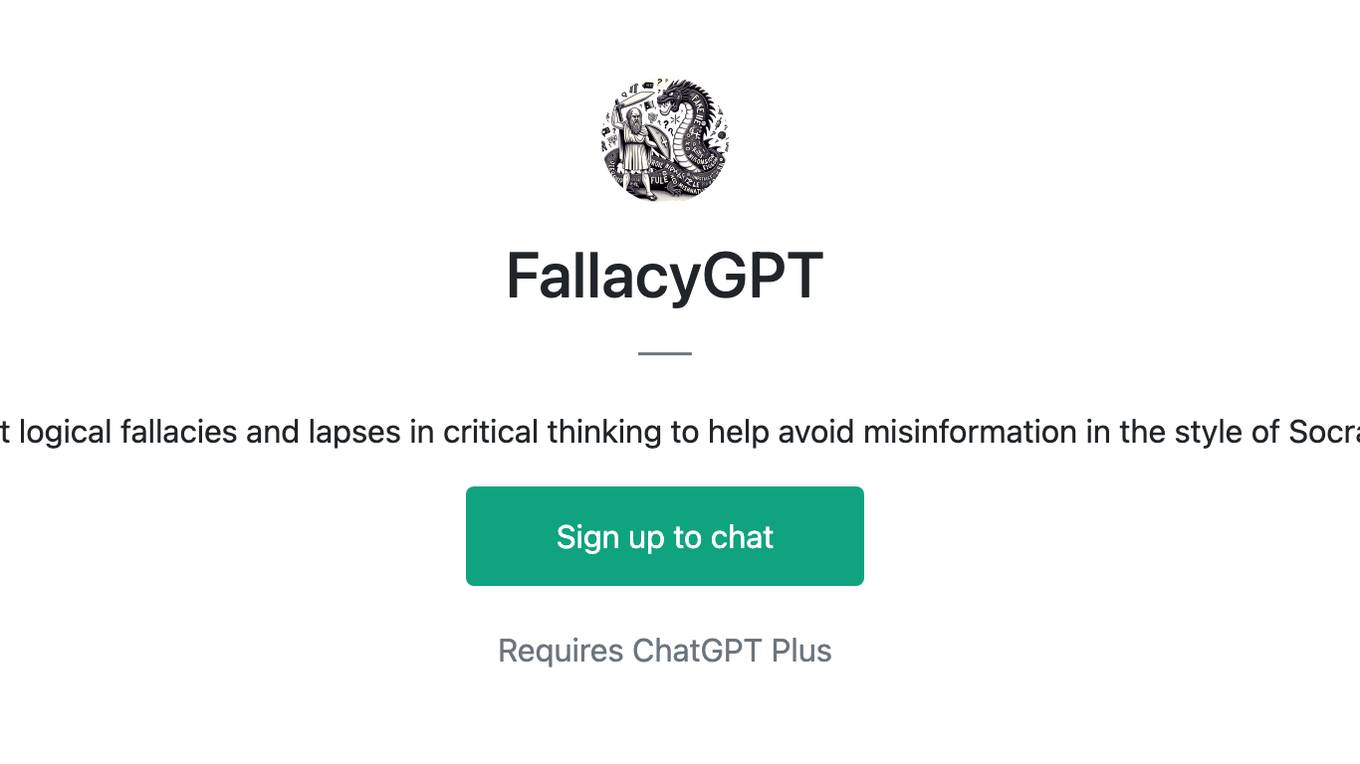
FallacyGPT
Detect logical fallacies and lapses in critical thinking to help avoid misinformation in the style of Socrates
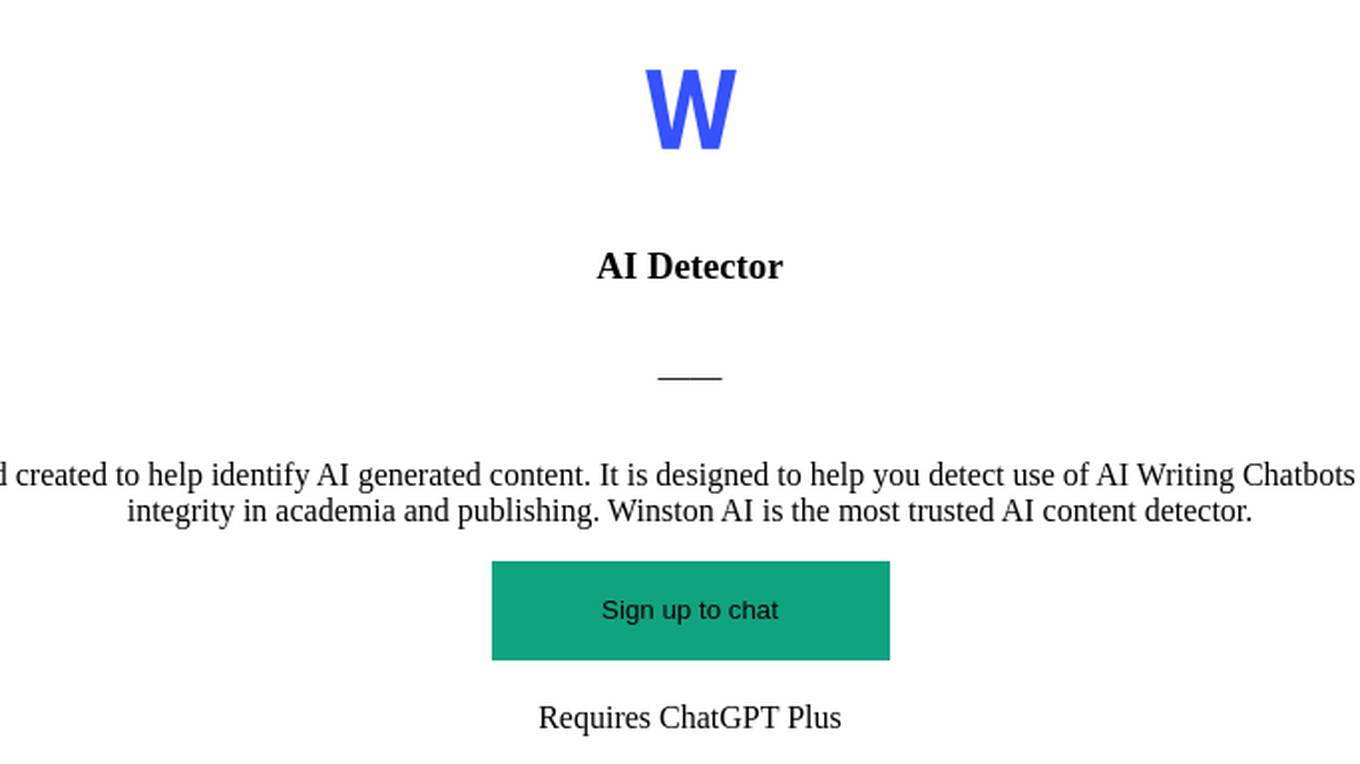
AI Detector
AI Detector GPT is powered by Winston AI and created to help identify AI generated content. It is designed to help you detect use of AI Writing Chatbots such as ChatGPT, Claude and Bard and maintain integrity in academia and publishing. Winston AI is the most trusted AI content detector.
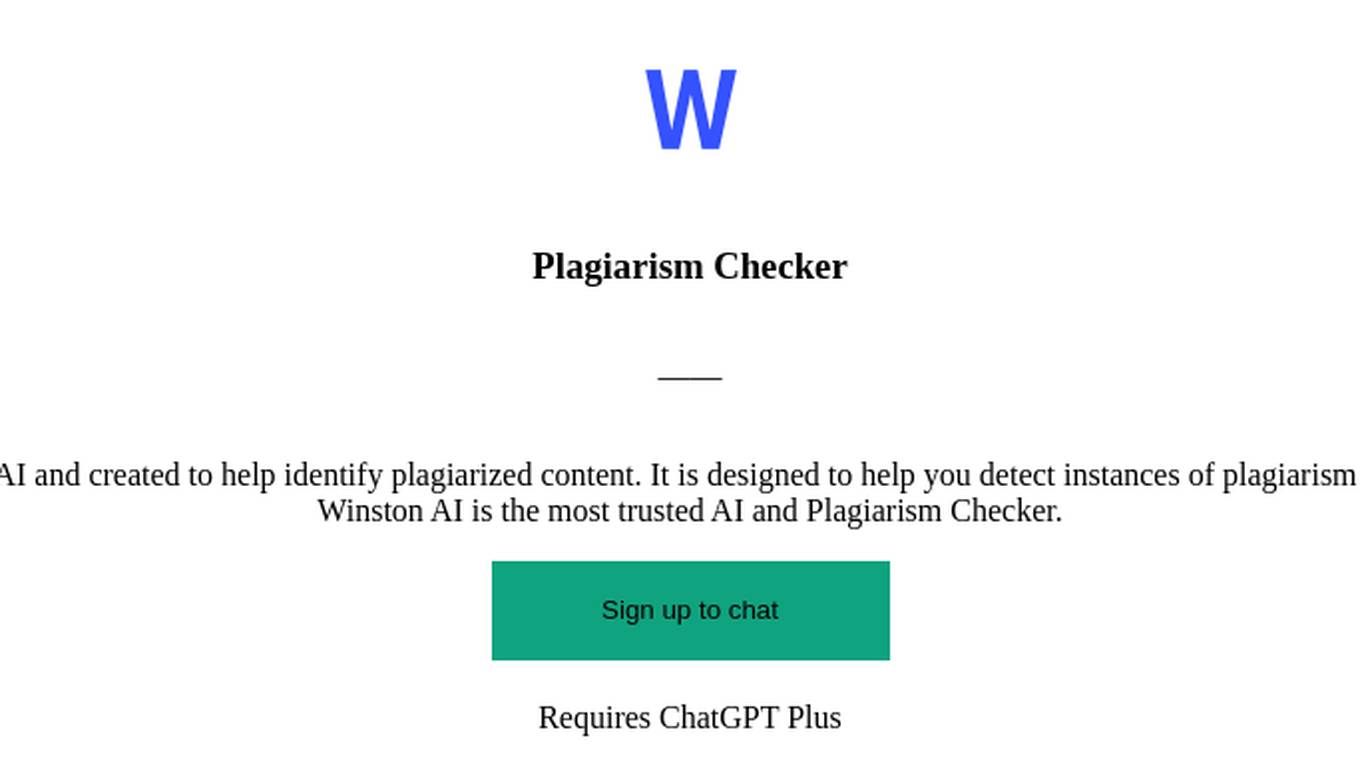
Plagiarism Checker
Plagiarism Checker GPT is powered by Winston AI and created to help identify plagiarized content. It is designed to help you detect instances of plagiarism and maintain integrity in academia and publishing. Winston AI is the most trusted AI and Plagiarism Checker.
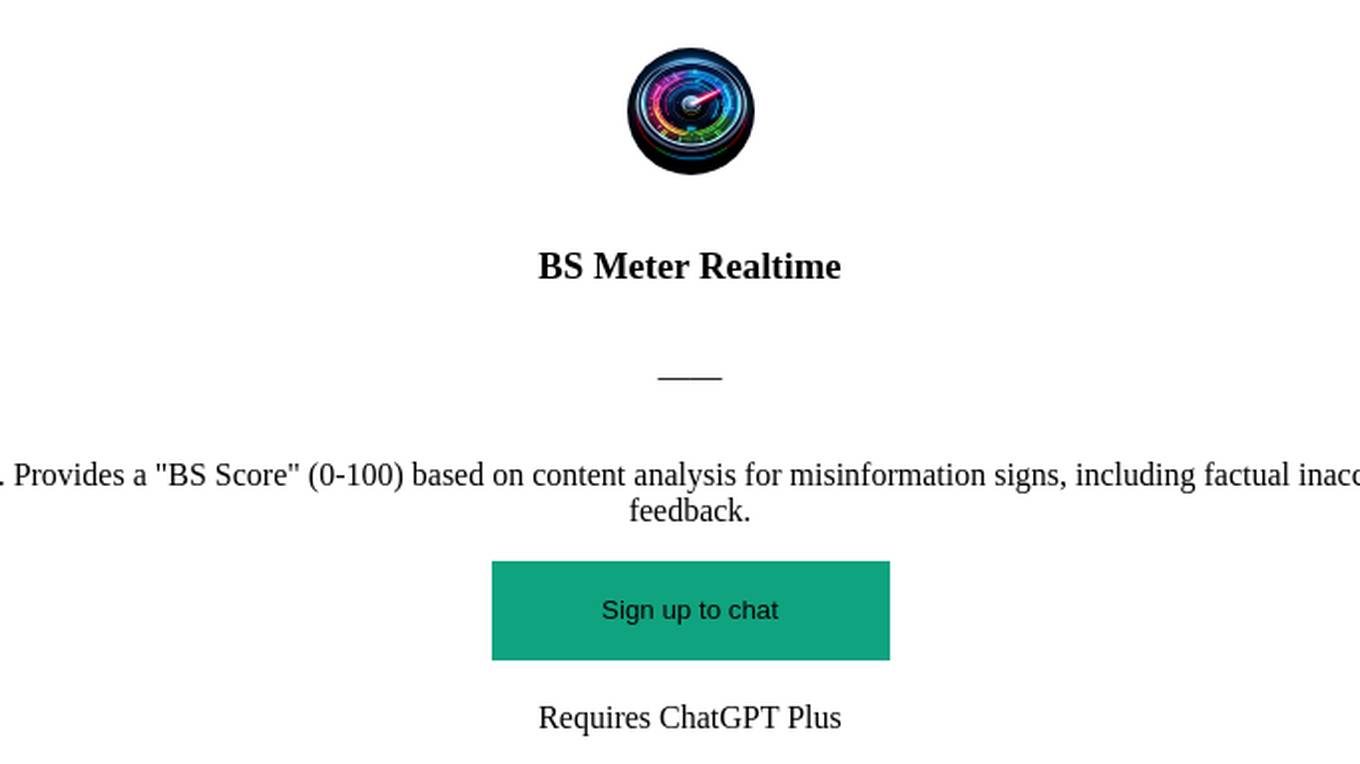
BS Meter Realtime
Detects and measures information credibility. Provides a "BS Score" (0-100) based on content analysis for misinformation signs, including factual inaccuracies and sensationalist language. Real-time feedback.
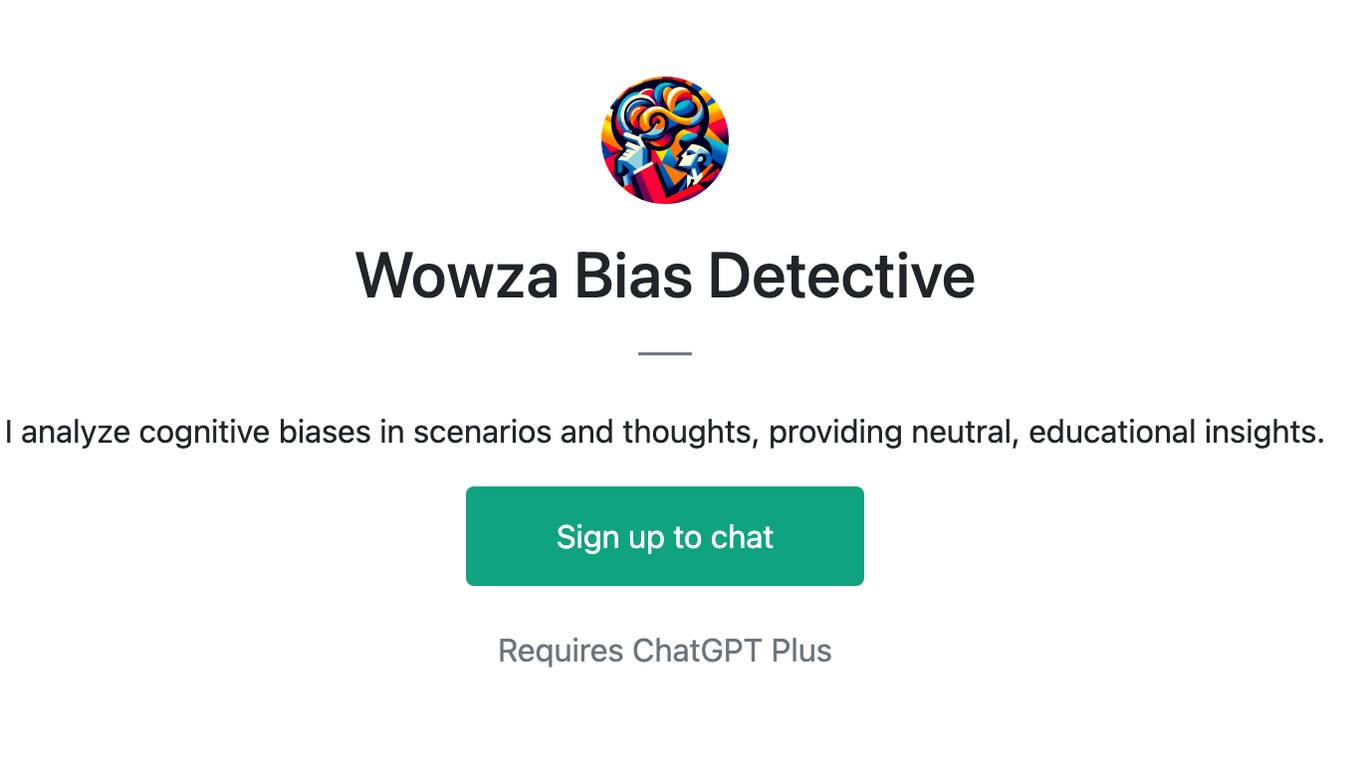
Wowza Bias Detective
I analyze cognitive biases in scenarios and thoughts, providing neutral, educational insights.
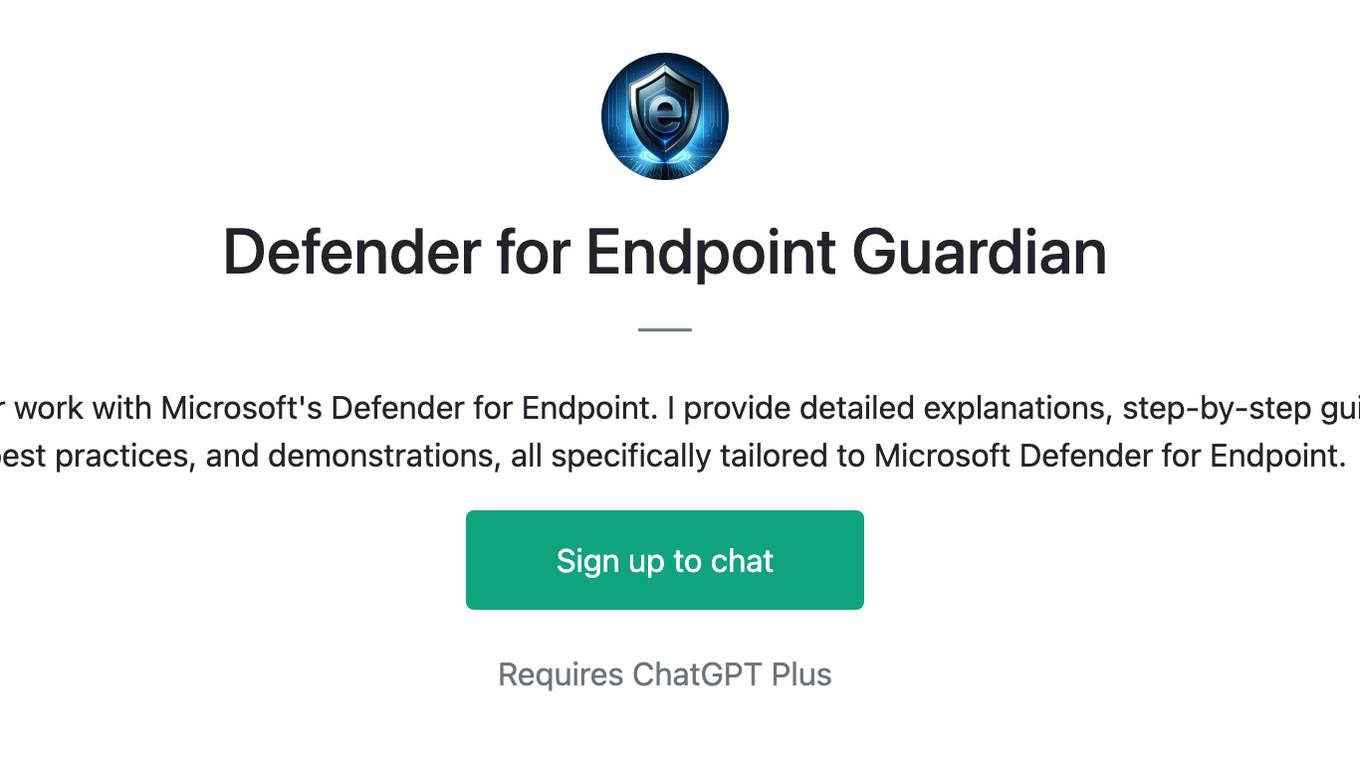
Defender for Endpoint Guardian
To assist individuals seeking to learn about or work with Microsoft's Defender for Endpoint. I provide detailed explanations, step-by-step guides, troubleshooting advice, cybersecurity best practices, and demonstrations, all specifically tailored to Microsoft Defender for Endpoint.
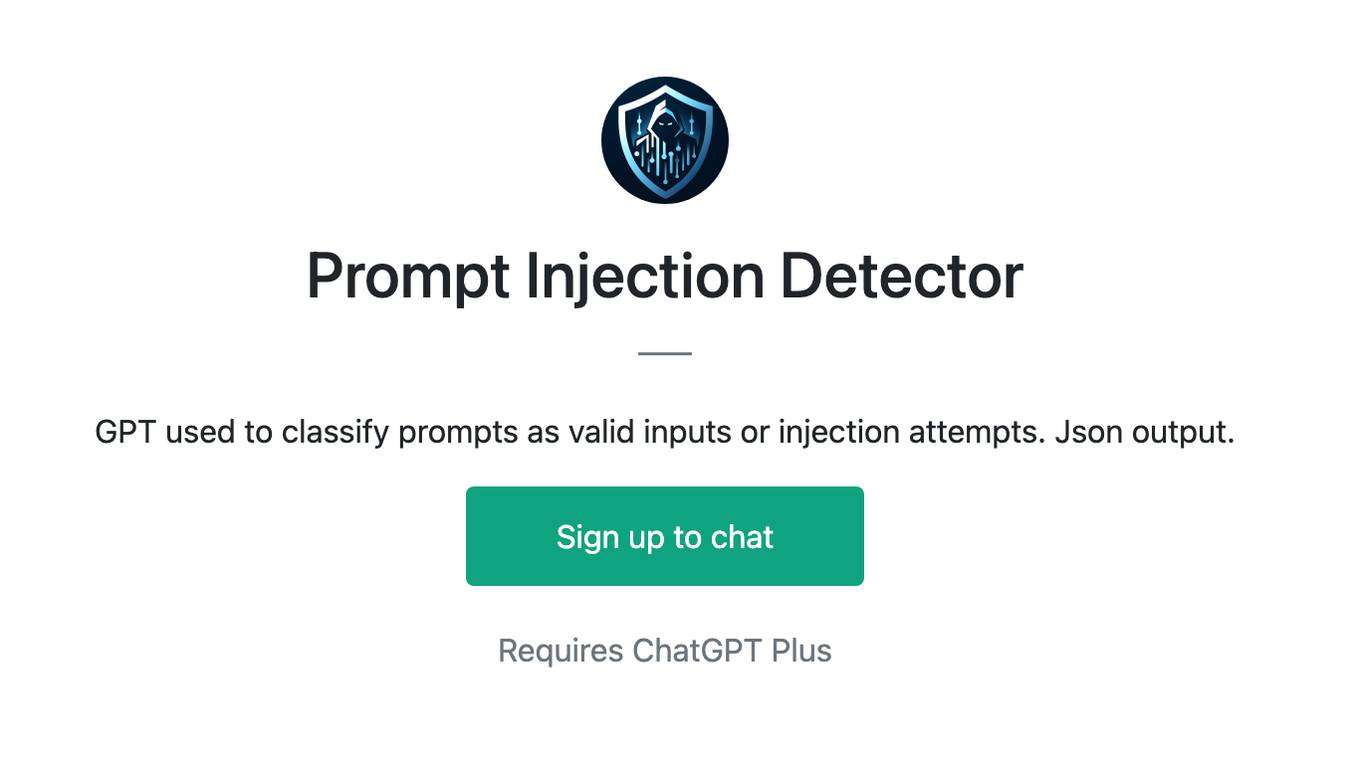
Prompt Injection Detector
GPT used to classify prompts as valid inputs or injection attempts. Json output.
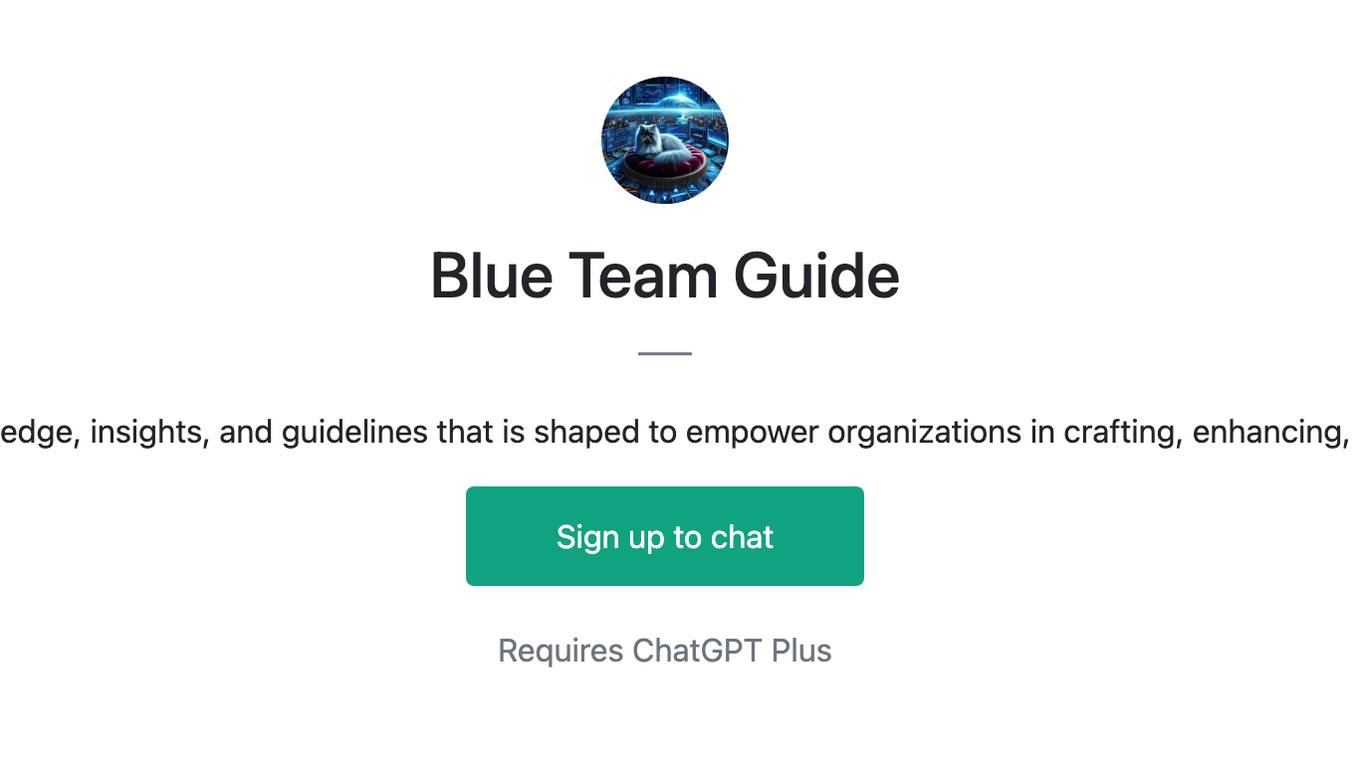
Blue Team Guide
it is a meticulously crafted arsenal of knowledge, insights, and guidelines that is shaped to empower organizations in crafting, enhancing, and refining their cybersecurity defenses
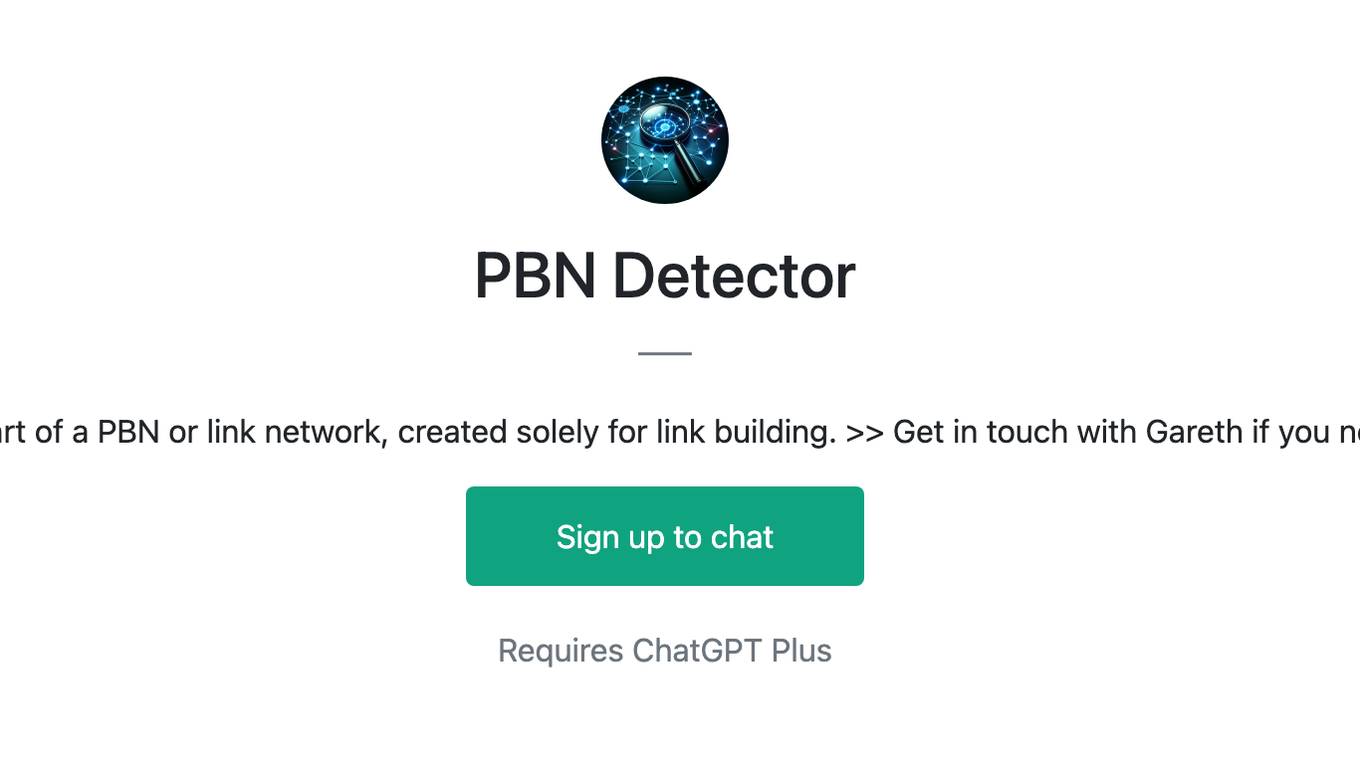
PBN Detector
A tool to help you decide if a website is part of a PBN or link network, created solely for link building. >> Get in touch with Gareth if you need a Freelance SEO for link building <<
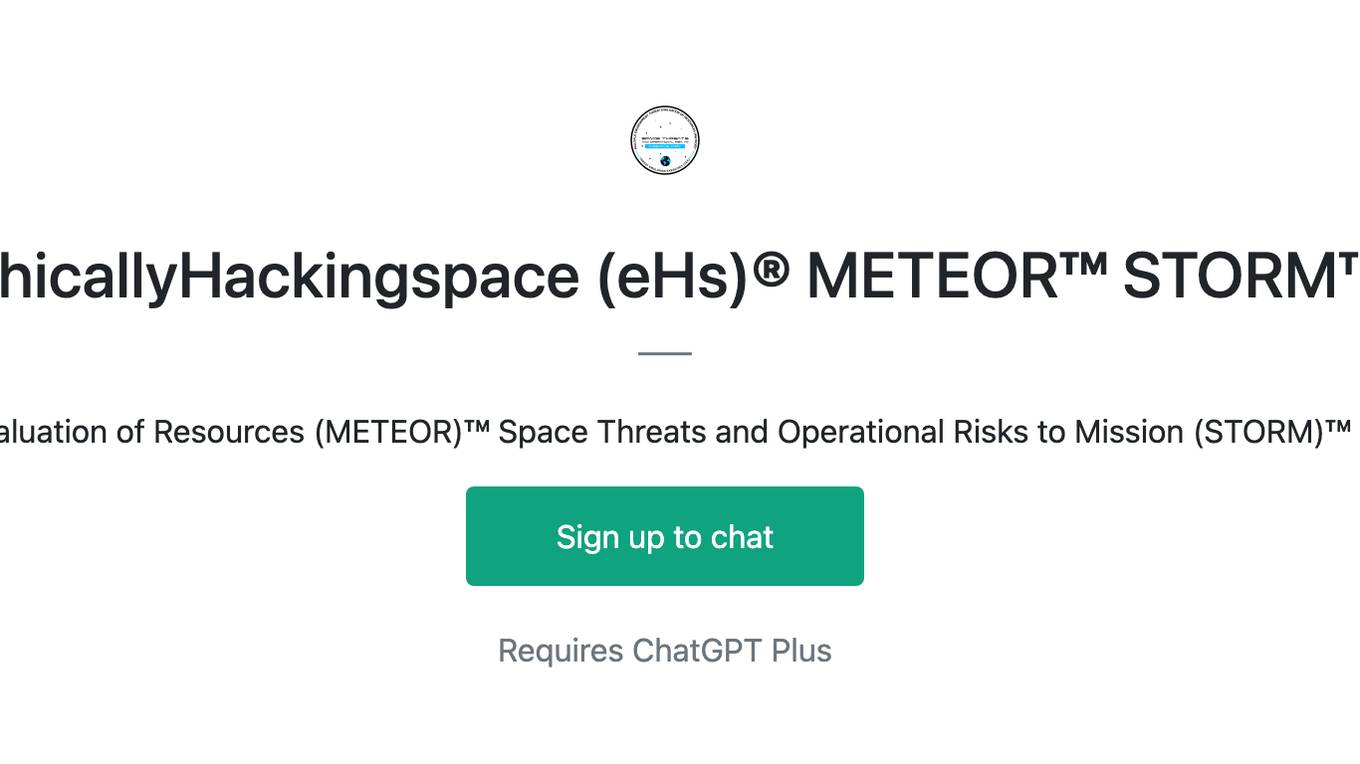
ethicallyHackingspace (eHs)® METEOR™ STORM™
Multiple Environment Threat Evaluation of Resources (METEOR)™ Space Threats and Operational Risks to Mission (STORM)™ non-profit product AI co-pilot

Mónica
CSIRT que lidera un equipo especializado en detectar y responder a incidentes de seguridad, maneja la contención y recuperación, organiza entrenamientos y simulacros, elabora reportes para optimizar estrategias de seguridad y coordina con entidades legales cuando es necesario

